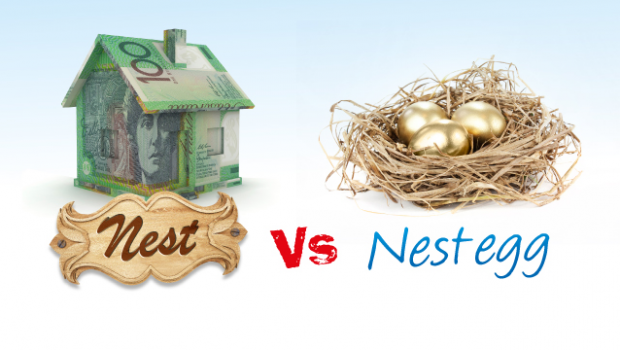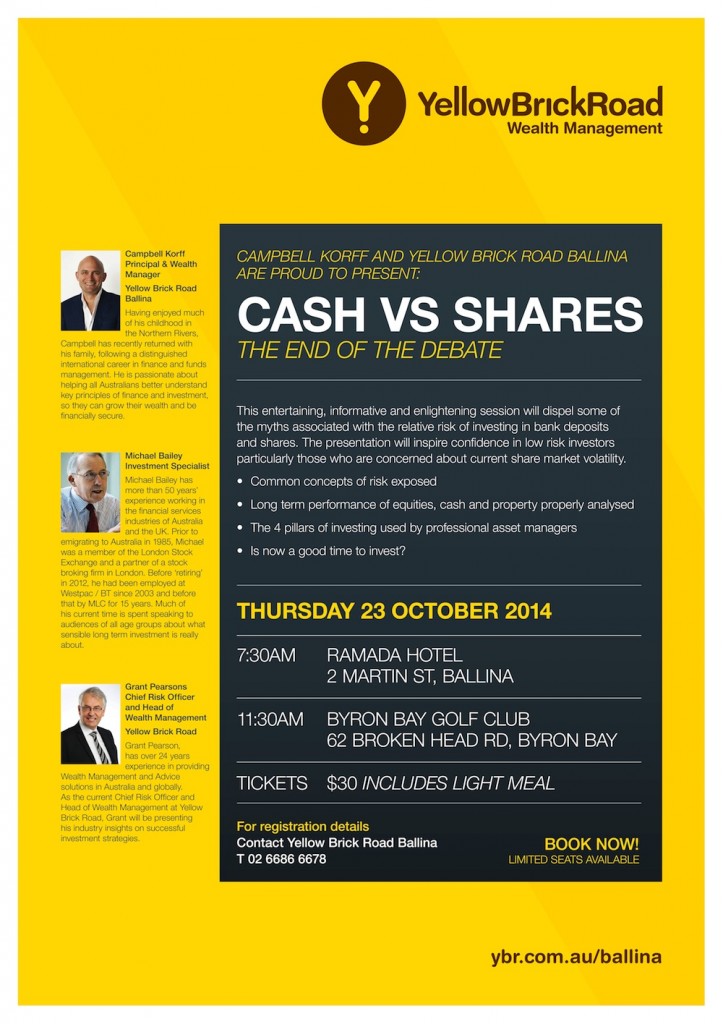The post The silver lining in the major bank rate rise appeared first on .
]]>The ‘Big Four’ banks all took the unusual step a couple of weeks ago of raising their mortgage rates by between 0.15 and 0.20% independently of the central bank. While by no means welcome news for homeowners, already nervous about a fragile economy, the rise will have a modest impact given the low base they rose from.
What the rise is really about, is the banks’ need to raise capital to sure up their balance sheets following APRA’s change to its capital adequacy requirements for banks in July this year. Obviously, if you are in the business of selling new shares, it is best to do it at a time when the prospects for future growth in earnings are good. If this is not the case, all you are doing is diluting existing earnings (from which dividends are paid) among more shareholders. The result: a lower share price.
For many reasons the opposite is currently true for the Big Four banks. So demonstrating to the market that they retain pricing power and are able to maintain their earnings, even in an unfavourable environment, will help the sales pitch for their new shares. For the time being at least.
The real winner out of this move is the RBA and, ultimately, the broader economy. Hitherto, the RBA was between a rock and a hard place: it needed to maintain low, possibly lower, interest rates to support a rebalancing of the economy but at the same time take the steam out of an over-heated metropolitan property market. Ongoing constraints in the supply of new homes and limited influence on lending policies, made this task almost impossible.
Fortunately, in an unintended act of altruism, the Big Four have raised rates and signalled that they might do so again. They have also had to, belatedly, tighten their lending to property investors. This has sent buyers in Sydney and Melbourne back to their spreadsheets.
Thus, the way is now clear for the RBA to maintain, if not further reduce, the cash rate to support the services sector and exporters (who will benefit from a resultant lower dollar). All good news for the Northern Rivers economy.
If you want to contact Campbell Korff of Yellow Brick Road Ballina go to: www.ybr.com.au/Branches/Ballina
The post The silver lining in the major bank rate rise appeared first on .
]]>The post Cash vs Shares – the end of the debate appeared first on .
]]>
As a financial adviser Campbell Korff knows what worries people – they don’t want to risk losing their savings, but he also knows that cash simply doesn’t work as a long term investment. He explains why…
The team at Yellow Brick Road Ballina fields around half a dozen enquires a day from people, predominantly retirees, asking what our best term deposit rate is. Upon further enquiry, it is more often than not revealed that the person enquiring has the bulk of their super and savings in cash because: “I lost a lot in the GFC and want to avoid risk”.
This concerns me so much that I recently invited some leading investment experts to Ballina and Byron Bay to deliver a seminar de-bunking some of the commonly understood concepts of risk and investment. The response was so positive, that I thought I would attempt to summarise the key points in this column.
As a case study, we looked at the relative performance of a $10,000 term deposit invested from 1980 to 2013, compared to the same amount invested for the same period in the entire ASX 200 companies (the good, the bad and the insolvent, across a period which included several crashes and crises).
The key conclusions of our discussion were:
- All of us, including most retirees, are investing our super for 20 years plus: matching your investment strategy to your timeframe is critical;
- Inflation is the enemy of long term investors;
- Because of inflation, cash simply doesn’t work as a long term investment;
- A well-diversified portfolio of shares should be part of all long term investment strategies;
- Re-balance your portfolio regularly to manage risk; and
- Don’t try to time the market: invest a little often and don’t overreact to short term volatility.
If you would like more information on these issues, drop me an email at [email protected].
The post Cash vs Shares – the end of the debate appeared first on .
]]>The post Doing sums to build your wealth appeared first on .
]]>
Pay off your house, or invest in Super? Campbell Korff examines the choices.
What is a better investment – paying off your home mortgage or putting more money into superannuation? It’s an age-old questions writes Campbell Korff, pointing out the advantages – and disadvantages – of each method.
As an investment, paying off your home loan early is very hard to beat. Paying off your mortgage equates to an after tax return on your capital equal to your mortgage interest rate. Even with interest rates down around 5%, to beat it you would have to find an alternative investment which provides a pre-tax net return of more than 8%. This is because you would pay tax on that return at your marginal tax rate. Assuming that to be, say, 34%; you get to keep 5.36% of an 8% return. As mortgage rates increase (which they will), this equation becomes even more compelling in favour of mortgage repayments.
What’s more, your return from home loan repayments is guaranteed (your bank must reduce your loan balance if you make a principal repayment), whereas returns from any other investments are not.
Every time you are able to generate savings for investment, ask yourself which asset classes are capable of beating your mortgage after tax and then ask yourself whether you are comfortable with the level of risk.
Super, on the other hand, is given a substantial leg up courtesy of the tax incentives provided by the Government to get us all to save for our retirement. Not only are contributions from your pre-tax income up to $30,000 ($35,000 if you are over 50) only taxed at 15%, but you get the huge benefit of compounding between now and retirement and your earnings from investments within Super are concessionally taxed. This equation brings a lot more investment options back into the picture versus your home loan repayments.
To illustrate this, I recently put together a financial model for a couple in their mid-forties with stable income from teaching and nursing respectively. They are currently generating a surplus of around $1,500 a month after their living expenses and regular mortgage repayments. The question was: should they invest the $1,500 in Super or prepay their mortgage? Assuming a relatively conservative “balanced” Super investment portfolio of fixed income and shares and their mortgage rate at 5.2%, Super came out over $25,000 in front over 10 years.
As always, everyone’s situation is different and you should ask your financial adviser to do the maths for you and design a plan that fits your circumstances. However, in many cases, salary sacrificing to Super will be very hard to beat.
Campbell Korff is the principal of Yellow Brick Road Wealth Management, Northern Rivers. Email: [email protected] ph: 66876678.
The post Doing sums to build your wealth appeared first on .
]]>
